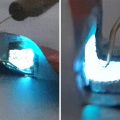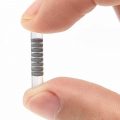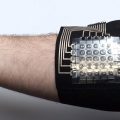
Researchers have developed 3D printed plastic chips that can communicate with smartphones and other Wi-Fi devices without electricity.
When talking about the Internet of Things, technologists oftenoverlook the need for a power supply or additional electronics to collect, exchange and process data. The fact that many objects to be connected to are made of plastic and do not have built-in computing components.
To solve this problem, a team from the University of Washington created ausing a 3D printer plastic chips thattransmit their bits by reflecting or not reflecting the signals of the Wi-Fi router. Mobile devices can interact with this type of backscatter by modulating the signal's reflection in space.
To create such wireless devices, scientistsintegrated plastic fiber composite materials with the addition of copper and graphene filings into a single computing circuit that functions as an antenna. The circuit consists of a gear that encodes the traditional bits (0 and 1) with or without a tooth.
As examples, they made a non-electronica music volume control, a button to automatically order detergent from an online store when the bottle is empty, and a sensor that sends an alarm to the phone when a water leak is detected. Similar solutions can be used in medical applications, for example, to monitor drug consumption or shelf life.
We also previously reported the invention of a circuit that generates net, limitless energy from the thermal motion of graphene at room temperature.
</p>




